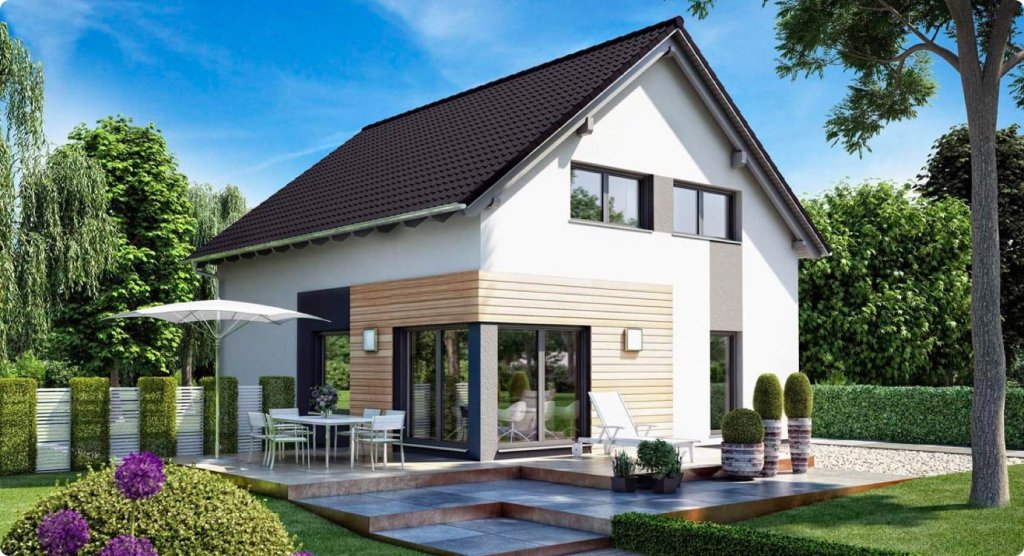Building your own house in Germany is quite an adventure! It’s like assembling a big, complex puzzle where every piece has to fit just right.
Germany is known for being thorough regarding rules and quality, especially for houses.
This means you must be well-prepared and know what you’re getting into. From figuring out your budget to finally moving in, many steps exist.
You’ll need to pick the perfect spot for your home, design it with an architect who knows about Germany’s strict building standards, and get the green light from local authorities before you can even start building.
And let’s not forget about choosing the right materials and ensuring your house is super energy-efficient, which is a big deal in Germany.
It might sound like a lot, but with the right help and patience, you can build a just right home for you.
Let’s dive into this journey, step by step, to make your dream home a reality!
Steps to Build Your House in Germany

1. Determine Your Budget
Before you start planning your dream home, knowing how much you can afford to spend is essential.
Building a house in Germany can be expensive, so it’s important to set a realistic budget that includes all the costs associated with the construction process, such as land purchase, architectural fees, building materials, and labor costs.
2. Find a Suitable Location
Once you have a budget, the next step is to find a suitable location for your house.
Consider factors such as the size of the land, the location, and the zoning requirements.
You may also want to consider the accessibility of the site, the surrounding environment, and the proximity to local amenities.
3. Hire an Architect
Working with an architect can be beneficial when building a house in Germany.
An architect can help you design your house to meet your needs and budget while complying with local building codes and regulations.
They can also advise you on energy-efficient design, essential in Germany due to its strict energy-efficiency standards.
4. Get Planning Permission
Before you can start building, you’ll need to obtain planning permission from the local authorities.
This process can take several months and involves submitting plans and specifications for your house.
You may also need to involve other professionals, such as surveyors, engineers, and environmental consultants.
5. Hire a Builder
Once you have planning permission, you can start looking for a builder to construct your house.
Choose a reputable builder with experience in the type of house you want to build.
Check their references, ask them to see their previous projects, and make sure they have appropriate insurance and licenses.
6. Choose Materials and Finishes
Working with your builder, you’ll need to choose materials and finishes for your house.
This includes everything from the type of roofing material to the type of windows and doors you want.
Consider factors such as durability, energy efficiency, and aesthetics when choosing.
7. Monitor Construction
During construction, it’s essential to monitor progress and address any issues that arise.
Regular site visits can help ensure your house is built according to your specifications.
Communicating effectively with your builder and promptly addressing concerns is also important.
8. Move-In
Once construction is complete, you can move into your new home!
But before you do, ensure everything is up to code and that any necessary inspections have been carried out.
You’ll also need to arrange utilities, such as electricity, gas, and water, and register your address with the local authorities.
Regulatory and Environmental Considerations in Germany

When building a house in Germany, understanding and adhering to the country’s regulatory framework and environmental standards is crucial.
Germany is known for its stringent building codes, environmental regulations, and commitment to energy efficiency.
These elements ensure the sustainability and safety of construction projects and significantly influence the design, functionality, and long-term viability of homes.
1. Building Codes and Regulations
- Bauordnung (Building Regulations): Each of Germany’s 16 states (Bundesländer) has its own set of building regulations, known as “Bauordnung.” These regulations cover building height, distance to neighboring properties, fire safety, and accessibility. It’s essential to consult the local Bauordnung early in the planning process to ensure compliance with specific regional requirements.
- Bebauungsplan (Development Plan): The local municipality’s development plan, or “Bebauungsplan,” provides detailed zoning regulations, including the type of buildings allowed, maximum building sizes, and specific local requirements. Adhering to the Bebauungsplan is mandatory for obtaining planning permission.
2. Environmental Regulations
- Naturschutzgesetz (Nature Conservation Law): This law aims to protect Germany’s natural habitats and biodiversity. Depending on the location of your building site, there may be restrictions to protect local flora and fauna, water bodies, and landscape features.
- Bundes-Immissionsschutzgesetz (Federal Immission Control Act): This act regulates emissions and pollution from construction activities, ensuring that your building project minimizes its impact on air and noise pollution.
3. Energy Efficiency Standards
- Energieeinsparverordnung (EnEV): The EnEV sets strict energy efficiency standards for residential buildings, covering insulation, heating systems, and renewable energy sources. Compliance with the EnEV is critical for new construction and major renovations.
- KfW Efficiency Houses: The KfW Development Bank offers financial incentives for buildings that exceed the minimum energy efficiency standards. The “KfW Efficiency House” standard is a benchmark for energy-efficient construction, with various categories indicating the level of energy efficiency achieved.
- Renewable Energies Heat Act (EEWärmeG): It requires new buildings to generate a portion of their heating and cooling energy from renewable sources. Options include solar thermal energy, biomass, and heat pumps.
4. Practical Steps for Compliance
- Early Consultation: Engage with local authorities and an experienced architect early in the planning process to understand all applicable regulations and standards.
- Professional Support: Consider hiring experts in German building law, energy efficiency, and environmental protection to navigate the complex regulatory landscape.
- Sustainability Focus: Incorporate sustainable building materials, energy-efficient designs, and renewable energy sources from the outset to meet environmental standards and reduce long-term costs.
- Certification and Inspections: Plan for necessary certifications and inspections throughout construction to ensure ongoing compliance with all regulations and standards.
By diligently addressing these regulatory and environmental considerations, you can ensure that your home in Germany not only meets legal requirements but also contributes to a more sustainable and energy-efficient future.
Conclusion
Building a house in Germany can be complex, but with careful planning and the right professionals, you can create your dream home.
Be prepared to invest time and money into the process, but remember it’s an investment in your future.
It’s worth noting that building a house in Germany can be a complex process, and there may be additional steps and requirements depending on your location and the type of house you want to build.
Learning German or working with professionals who can guide you through the process and ensure that everything is done correctly is a good idea.

